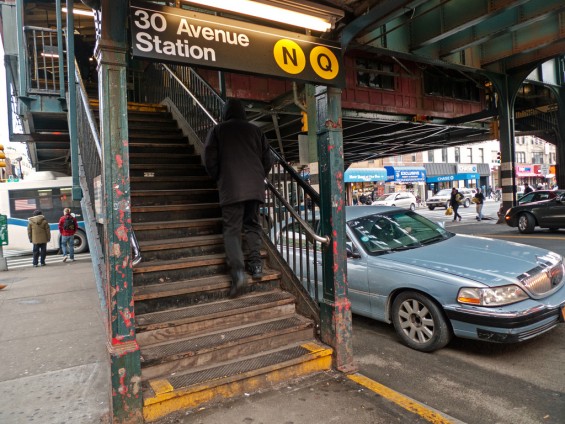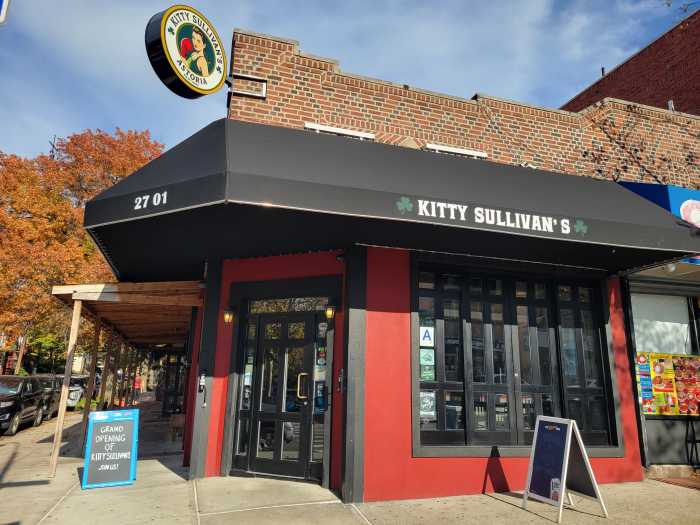30th Avenue Station (Closed until June for construction)
Feb. 15, 2018 By Tara Law
The New York Supreme Court will be hearing oral arguments next month from the MTA as it fights a class action lawsuit filed by disability advocates who claim that the agency has violated their human rights by failing to install elevators at all subway stations.
The class action lawsuit filed by the Center for Independence of the Disabled New York alleges that the MTA’s failure to install elevators at 360 stations out of 472 citywide— is discriminatory. They are calling on the court to require the MTA to install them at all stations.
The court will begin hearing arguments on March 5 from the MTA as part of the agency’s motion to dismiss the case.
The suit claims that the MTA is in violation of the Human Rights Law since “people with disabilities cannot utilize the subway system on an equal basis as the millions of other residents and visitors do.”
The complaint argues that access to public transportation is especially vital for the disabled, who often rely upon it for integration into society and are at risk of isolation.
The case is being heard at a time when the MTA is facing a great deal of criticism in Astoria. The agency is in the midst of overhauling five N/W Astoria station—two of which are currently closed for construction—and none of the revamps will include elevators.
Disability advocates and Astoria’s lawmakers claim that the station upgrades should include elevators, claiming that the station closures are not worth it without. The stations being upgraded (or undergoing an upgrade) are 30th Avenue, 36th Avenue, Broadway, 39th Avenue and Ditmars.
The only subway station on the N/W that is set to receive elevators is Astoria Boulevard. Construction of elevators at that station is set to begin this year, said MTA spokesperson Shams Tarek.
“Our subways must serve everyone, including people with disabilities, seniors, and parents with strollers,” Costa Constantinides said in a recent statement.
The MTA, as part of its motion to dismiss the class action suit, argues that it does not have the funding to add elevators to all New York City stations, and must prioritize certain stations based on their ridership and connectivity to different lines.
Tarek said that the MTA could not directly comment on pending litigation, but has said in the past that the adding elevators to stations, which were not constructed with elevators in mind, is costly.
“You have to basically rebuild the entire station to build an elevator, because you have to take apart the mezzanine,” Tarek said. “Usually you have to rebuild the platform— widen it.”
Widening the platform often requires that the tracks be moved, he said.
Approximately $1 billion was allocated to make 19 stations ADA accessible during the 2015-2019 MTA Capital Program, including the Astoria Boulevard station. An additional $427 million was allocated to replace 42 elevators and 32 escalators.
The Astoria Boulevard station was selected for four new elevators because it was identified as a “key connection point,” said Jon Weinstein, Director of Communications and Senior Advisor to the Chair of the MTA during a recent press tour of the 36th Avenue station construction.
The Astoria Boulevard station connects to the M60 bus line, which is important for people going to LaGuardia Airport, he said.
“In an ideal world, all the stations would get elevators. Right now, we have the funding to do only a certain number of stations,” Weinstein said.
CIDNY v. MTA NY State Complaint by Queens Post on Scribd



































